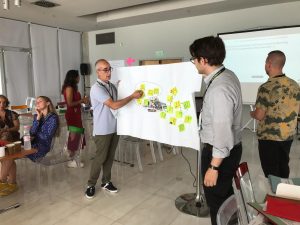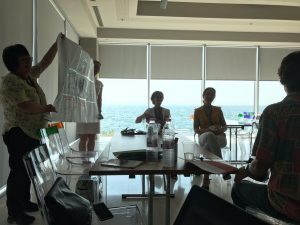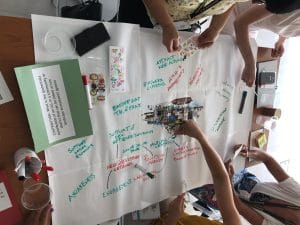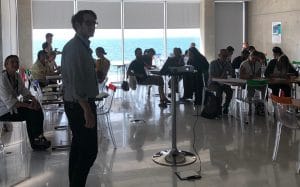Join JPI UE
Faq
FAQ
Please click here for the frequently asked questions we collected.
If you have an additional questions you are welcome to mail us at info@jpi-urbaneurope.eu
JPI Urban Europe has funded more than 80 transnational research and innovation projects supporting transitions towards urban sustainability of which about half have implemented Urban Living Labs (ULL). ULL use flexible and innovative ways to address, co-create and experiment on societal challenges in everyday urban settings as well as with new policies. They co-design and test new methods to tackle specific urban challenges and for exploring new governance models outside the conventional R&I laboratories. JPI Urban Europe are on a journey to take ULLs to its “2.0” and we therefore address a number of questions, many of which relate to impact and capacities for having ULLs contribute to the urban transformations towards sustainability.
The participation in Thessaloniki was an opportunity to work with a wider set of Living Lab practitioners and their experiences. Outcomes from the workshop “After Urban Living Labs” will be used on JPI Urban Europe programme-level as input for how ULL challenges can be best tackled. As participants in the workshop got going with their discussions, they visualised their reflections on a larger canvas featuring an urban landscape montage, using colour coded pens and stickers to communicate their input on where in the landscape transformation can be realised. Together, we explored the connections and qualities that have ULLs endure after the end of a project timeline, and what defines the framework conditions for ULLs outcomes to be sustainable.


Using a blue pen, participants drew how the contribution of ULLs to urban transformation can connect to and “scale across” innovation landscapes and ecosystems. Participants were very optimistic to ULLs potential contributions to urban transformation. They identified a few key aspects and frameworks that needs to be in place for successful contribution, such as recognising and making use of a diversity of knowledges and actors, be anchored in local contexts and social challenges, related to political agendas and have strategies beyond project timelines.


Participants identified several ways for urban living labs to create value and capacity between and across diverse contexts. ULLs can function as co-creation arenas and mutual learning platforms, whereby learnings and new found knowledge can stretch and be useful beyond and around the project. Similarly, ULLs create valuable connections between different contexts (not just geographical but also social, environmental and cultural) in a resource efficient way. They have a tendency to bridge the gap between theory and practice, something which other settings often fail to do. Participants also reflected on the term “experts” and the need to recognise a diversity of knowledges rather than hierarchical understandings of valuable experiences. ULLs can contribute to openness in attitude and new ways of thinking and to put pressure on decision makers to speed up urban transitioning.
Do you agree?